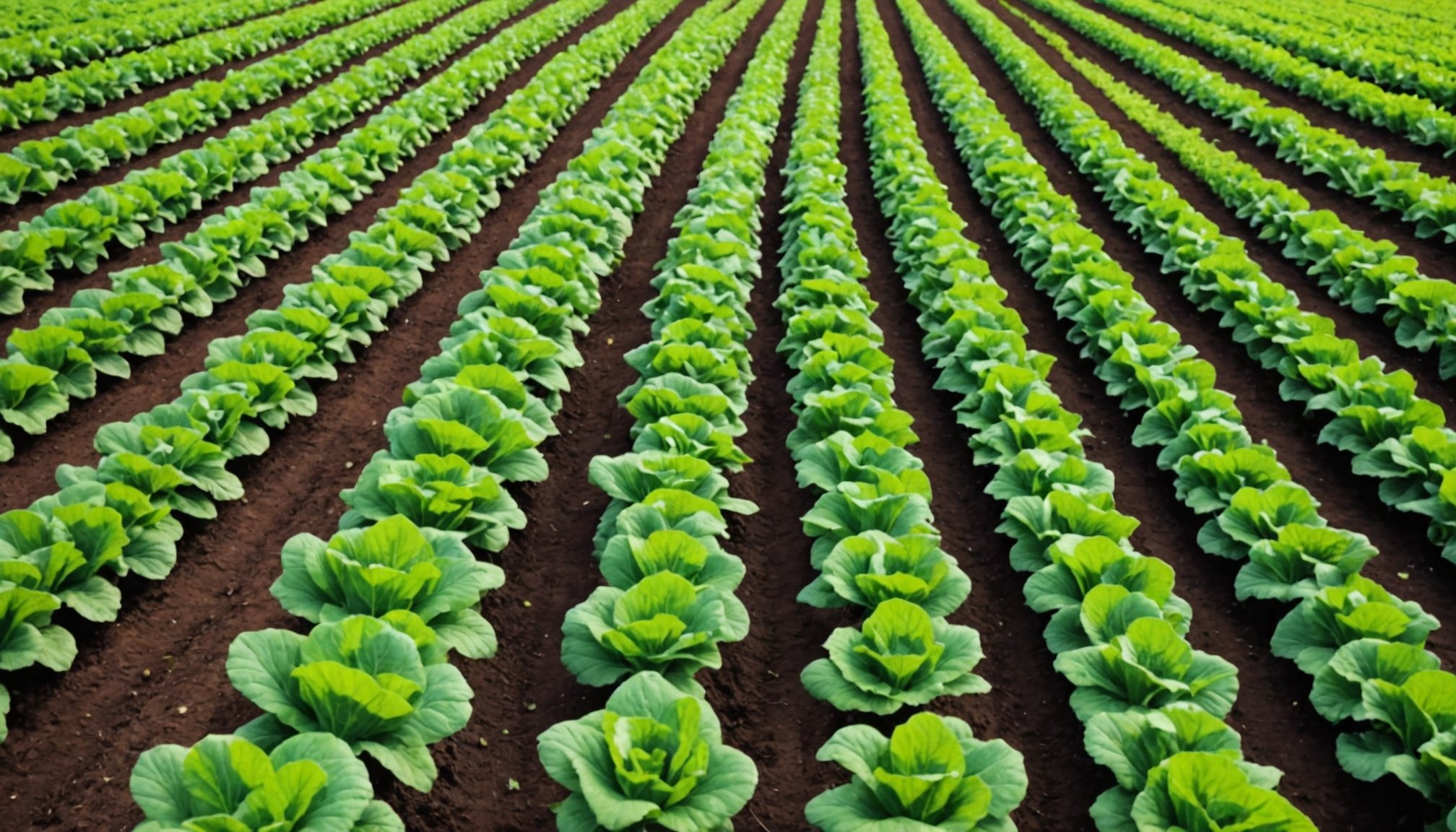Legal Requirements for Organic Farming in the UK
Embarking on organic farming requires understanding the legal requirements and obtaining necessary permits within the UK. Farmers aspiring for organic certification must align with UK farming regulations, ensuring their practices are in accordance with government standards.
To start, farmers must register with an approved organic certification body, such as the Soil Association or OF&G. This step is crucial to acquiring the organic certification needed to sell products under the organic label. Organic certification bodies conduct inspections to verify that farming practices adhere to the established standards.
Have you seen this : Launching Your UK Virtual Reality Gaming Business: A Guide to Navigating Age-Appropriate Content Regulations
The UK has stringent organic standards, setting guidelines for soil management, biodiversity conservation, and livestock welfare. These standards emphasize sustainable agricultural practices, aiming to reduce environmental impact and promote biodiversity.
Moreover, compliance with EU organic regulations remains significant despite Brexit. UK farmers involved in exporting goods to EU countries must ensure compatibility with these regulations to retain their foothold in the European market.
Also read : Ai coaching platform: unlocking scalable, personalized workforce transformation
Failure to meet the UK farming regulations or EU standards can lead to penalties, legal issues, and loss of organic certification. Therefore, understanding and adhering to these legal requirements is essential for maintaining the integrity and marketability of an organic farming operation.
Selecting Suitable Crops for the UK Climate
When deciding on suitable crops for your land, the UK’s diverse climate and regional weather patterns must be taken into consideration. These factors significantly influence crop selection.
The UK’s climate ranges from mild and wet in the west to cool and temperate in the east. As a result, understanding your local climate is essential for successful crop selection. Consider factors like temperature, sunlight, and rainfall. Such conditions determine which suitable crops can thrive. For instance, while potatoes flourish in the varied conditions of Scotland, leafy greens like spinach are well-suited to the milder south-east.
Organic farming enthusiasts should explore grains such as barley and oats for northern regions, where they grow well under cooler temperatures. In contrast, the south is conducive to growing fruits like apples and pears.
Seasonal planting schedules and harvesting timelines are crucial, too. Planning your crop rotations according to seasonal changes ensures a continuous yield across the year and maintains soil health. Understanding these timelines can aid in making informed decisions, maximize your yield, and sustain productivity in the UK climate. Research local agricultural advice to align planting schedules with regional variations for optimal results.
Soil Management Techniques for Organic Farming
Effective soil management is crucial in organic farming, serving as the foundation for healthy produce. Ensuring organic soil health involves nurturing the soil’s natural ecosystem, which enhances both plant growth and resilience against diseases.
Importance of Soil Health in Organic Farming
In organic farming, soil acts as the primary source of nutrients. Maintaining organic soil health ensures crops receive adequate nutrition while avoiding synthetic inputs. A thriving soil environment supports beneficial microorganisms, which in turn bolster plant immunity and growth.
Methods for Improving Soil Fertility Naturally
Promoting soil fertility is achievable through various regenerative practices. Utilizing cover crops helps fix nitrogen and add organic matter to the soil. Composting is another effective method, providing a rich nutrient base for plants. Crop rotation is equally beneficial, disrupting pest life cycles and varying nutrient demands.
Strategies for Managing Soil Erosion and Degradation
To combat soil erosion, farmers can adopt contour plowing, which reduces runoff and preserves nutrient-rich topsoil. Incorporating permaculture design principles enables water retention and soil integrity. Similarly, maintaining a cover crop or mulch safeguards the soil from weather-induced degradation, preserving its structure and organic content.
Organic Certification Processes
Securing an organic certification is an essential step for businesses committed to sustainable practices. The process involves several meticulously designed steps that ensure the produce or product adheres to organic standards. Initially, businesses must evaluate their practices to align with the prevailing guidelines set by key organizations in the UK, such as the Soil Association and Organic Farmers & Growers. These certification bodies play a pivotal role by providing the necessary frameworks and conducting initial assessments.
Applicants undergo compliance checks, which typically include a comprehensive review of farm management plans, production processes, and documentation to verify adherence to organic farming practices. Once initial compliance is confirmed, an on-site inspection is arranged to ensure practices are indeed in line with organic standards.
Maintaining an organic certification demands ongoing commitment. Regular inspections are carried out by the certification bodies to confirm sustained compliance. Businesses are required to maintain detailed records and update the certification bodies on any changes in their operations. This continuous cycle of evaluation, inspection, and reporting is imperative for retaining certification status.
By understanding these steps and requirements, businesses can effectively navigate the intricate process of organic certification and maintain their status, reinforcing their dedication to organic quality and consumer trust.
Effective Pest Control Methods for Organic Vegetables
Maintaining a healthy organic vegetable garden hinges on effective pest control through eco-friendly solutions. Integrated pest management (IPM) is a reliable strategy that combines diverse methods to manage pests sustainably. This approach prioritises prevention and uses chemical interventions only as a last resort.
Core Concepts of IPM
IPM involves understanding pest lifecycles and implementing practices that strengthen plant resilience. Early detection and regular monitoring are vital, enabling targeted actions before pests cause significant damage.
Role of Beneficial Insects
Introducing beneficial insects can be a game-changer. These natural predators, such as ladybugs and parasitic wasps, help maintain an ecological balance by feeding on harmful pests like aphids and caterpillars. Encouraging their presence supports a self-regulating environment.
Organic Pesticides
When intervention is necessary, organic pesticides offer a safer alternative. Derived from natural sources, they include neem oil, diatomaceous earth, and plant-based sprays, each targeting specific types of pests without harming beneficial insects. Proper application is crucial, focusing on specific plant areas and considering timing to minimise environmental impact.
By incorporating these eco-friendly solutions and strategies, gardeners can effectively control pests while maintaining the health and productivity of their organic vegetables.
Conducting Market Research for Organic Produce
In the ever-growing world of organic produce, conducting effective market research is crucial for success. Understanding consumer preferences is at the heart of this process. By identifying what drives the purchase decisions, businesses can tailor their strategies to meet customer expectations. One effective way to tap into these preferences is through surveys and focus groups. These tools provide valuable insights into the tastes, concerns, and desires of customers. They allow companies to gauge opinions directly from the target audience, resulting in a more tailored approach to marketing and product development.
In addition to consumer insights, analyzing competition within the organic market is equally essential. By identifying competitors’ strengths and weaknesses, businesses can position themselves effectively to gain a competitive edge. This involves examining existing products, pricing strategies, and distribution channels. Understanding the market landscape helps businesses identify gaps and opportunities.
Consumer trends in organic produce are constantly evolving, driven by factors such as health awareness and environmental concerns. Staying informed about these trends enables businesses to adapt and innovate, meeting the rising demand for organic options. With the right research techniques and analyses, companies can thrive in this competitive, yet rewarding, market.
Developing Marketing Strategies for Your Organic Farm
Identifying target markets is essential for successful marketing strategies in organic farming. Understanding who desires organic vegetables and their buying habits helps tailor your efforts efficiently. Those who prioritise health, sustainability, and eco-friendliness often form the core audience. By engaging deeply with these groups, highlighting the benefits of organic produce, you can foster loyalty and advocacy.
Leveraging online platforms, particularly social media, is a dynamic way to promote your farm. Create engaging content showcasing behind-the-scenes glimpses of your daily operations on platforms like Instagram and Facebook. Share stories about your farming practices and post regular updates about your produce to keep your audience connected. Consistent and authentic interaction can significantly boost visibility.
Building a brand narrative is equally fundamental. Craft a compelling story around your farm’s journey, values, and mission. Why did you choose organic farming? What makes your produce unique? Customers love brands with a purpose. Integrate storytelling into your marketing materials to establish an emotional bond with your audience. An engaging brand story can set you apart in a competitive market, shaping consumer perceptions and building trust in your products.
Resources and Case Studies
Diving into the realm of organic farming can be both exhilarating and demanding. Fortunately, there are various farming resources available for those eager to embark on this journey. Resources such as guides, publications, and tools aid new organic farmers in navigating the complexities of transitioning to organic practices. These sources distill valuable knowledge from experienced practitioners, ensuring that novices have a strong foundation.
Success Stories
Learning from others’ case studies can be immensely enlightening. Numerous successful organic farms across the UK share their experiences and methodologies, serving as practical models. For instance, these success stories highlight innovations in pest management, soil health, and sustainable yield improvement, providing valuable insights that aspiring farmers can adapt to their own practices.
Downloadable Checklists
Moreover, for those just starting out or those who prefer organised instruction, downloadable checklists are indispensable. They guide farmers through essential tasks and phases of organic farming, from planning and preparation to cultivation and harvesting. These comprehensive lists are detailed yet straightforward, ensuring nothing is overlooked in the process. Aspiring organic farmers should use these resources to make informed decisions and streamline their journey to a successful organic farming endeavour.






